
by BGF | Aug 13, 2018 | Global Law and Accord on AI and Digital
The former Massachusetts governor is engaged in the global debate over AI, and is interested in pursinge an international accord to assure AI is used for the good of humanity.

According to Bob Salsberg’s article in the Associated Press, the 84-year-old Dukakis – Co-founder of Artificial Intelligence World Society and Michael Dukakis Institute (MDI) for Leadership and Innovation is encouraging the United Nations to pursue an International Agreement regarding constructive uses of AI.
His project has brought many scientists, government officials, and leaders together to create an initiative to help AI to serve humanity’s best interests—and to address concerns of industry leaders that AI might evolve superhuman powers, establishing control over humans, including its creators. Recently, the organization held an international conference at Harvard in April, proposing the establishment of a body along with International Atomic Energy Agency. The goal of such a body would be to pursue agreement amongst governments about how AI should be used to assure “We don’t have more hacking of elections and a few thousand other things that seem to be cropping up” said Dukakis.
Nguyen Anh Tuan, Co-founder of MDI also announced an initiative – the 7-Layer Model on AI ethical standards, which is designed to serve as an ethical framework for the development technology.
Additionally in this talk, Dukakis made the case against allowing AI to run governments. AI should only help humans increase productivity, he said, we must be wary about it replacing human governance or taking away jobs.
Top newspapers in US such as The New York Times, The Washington Post, The Boston Globe, and The Miami Herald also covered Salzburg’s article.
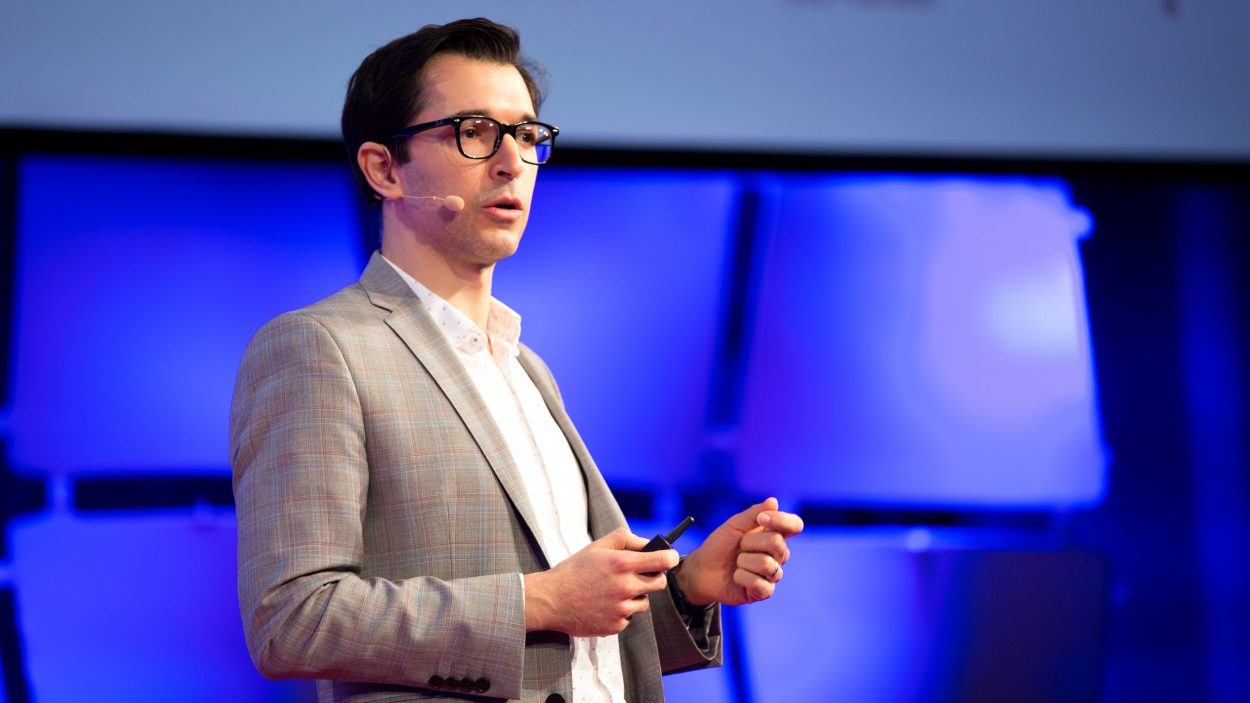
by BGF | Aug 13, 2018 | News
In June 2018, Iyad Rahwan, PhD from the University of Melbourne, Australia, and an affiliate faculty at the MIT Institute of Data, Systems, and Society, took part in a discussion at EmTech about which skills will be most valuable in the new era.

The talk focused on the changes AI and automation will bring about in the workforce. It is difficult to predict which risks will come to fruition in the future, as different researchers have argued for different outcomes and their data offer different findings. But it’s certain that there will be changes in jobs and salaries, and consequently it is necessary for people to be able navigate possible career transitions as AI advances.
To understand more about the relationship between jobs and skills, a study was done on 700 job categories classified by Department of Labor and 200 skill categories, producing a network of skills for each category of job. Skill polarization separates socio-cognitive skills including social, analytical, managerial skills, etc. (on the left) from sensory-physical skills including sensory, physical, psychomotor (on the right) The map given by Iyad Rahwan suggests that skill polarization underlies job polarization. In term of jobs, there are two branches: cognitive job and physical jobs, types of jobs are on one side of the two islands on the map. As there’s often little connection between these branches, people can’t easily move from one to the other, as well as from lower-skilled portion to higher-skilled portion of the map. When the time comes, it will be easier for people with cognitive skills: analytic, programing… but workers who has set of sensory skills will likely need to pursue additional education to be competitive in the labor market. Prof. Iyad Rahwan then emphasized the importance of education since the more people learn the more they progress in their career.
The work presented by Iyad Rahwan showed potential in predicting temporal changes to occupational skill requirements and even how the skills of entire urban labor markets evolve over time. As a result, this insight demonstrates how workplace skills underlie the US economy and suggests the possible retraining programs for workers. It also points to policies aimed at maintaining employment opportunities as economic competition increases under globalization and automation.
Iyad Rahwan is an associate professor at the MIT Media Lab and a fellow of the Michael Dukakis Leadership Fellow Program, which was established as an effort of the MDI to enrich the participants’ leadership competency and integrity and to engage youth in the promotion of peace and world security. Last year, Prof. Iyad Rahwan had a discussion with Gorvernor Michael Dukakis on the need for standards and norms to advance the peaceful development of AI—a view shared by AIWS, the BGF, the MDI and this brilliant young researcher.
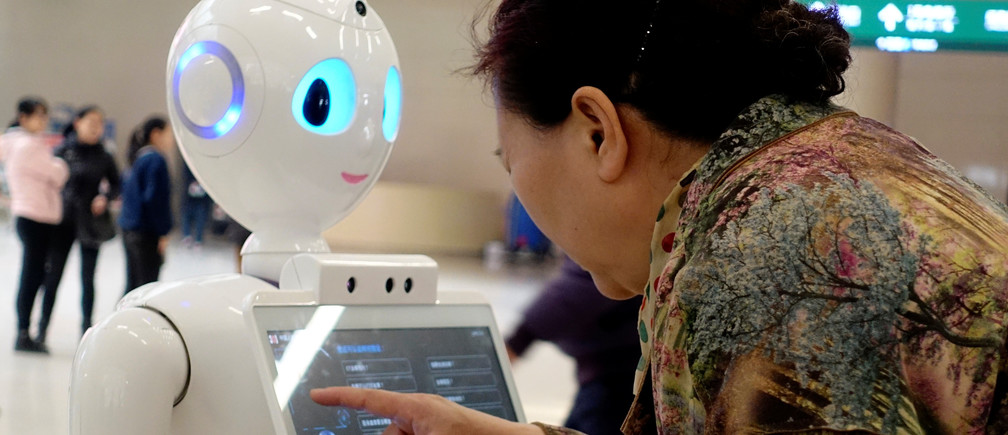
by BGF | Aug 13, 2018 | News
The recent scandals over the use of Facebook user data has proven the necessity of ethics for AI, but standards to assess AI are still in their infancy. Further debate should be done to come up with solutions to this pressing issue.

According to the World Economic Forum’s news, so far, the ethical standards for assessing AI and its associated technologies are still in their beginnings. Some standards mentioned are deontological and teleological ethical standards, the golden rule of ethics which means treating others the way you want to be treated. Another set is cultural relativism versus universalism, the former evaluates actions through values and norms of a given culture while the latter encourages living up to universal standards. Ethical standards have the tendency to shape global competition since many companies are trying to become industry leaders, and it is difficult to tell what they could do to get ahead. Moreover, predictability and transparency are also required to attract investment in the use of AI.
Another aspect in need of careful consideration is creating cognitive machines capable of making independent decisions. AI has strong potential to do good in the world, but it also poses some ethical challenges. Firstly, if mistakes made by AI cause serious damage, who should take the responsibility for the damage? Secondly, if AI can make many important decisions independently, transparency will be something that needs attention, otherwise people might find it difficult to understand the causes behind a specific series of actions made by AI. A few other issues including bias and human values pose a challenge to humankind, as AI mostly uses data for machine learning progress.
AI needs attention to moral principles and values to ensure its action will be for human interests. MDI is developing the 7-Layer Model on ethical standards for AI to serve as a platform for exploiting the benefit aspects of AI and a useful approach for innovators to follow.

by BGF | Aug 13, 2018 | News
Coursera introduces new learning machine tool which can show companies what their employees are learning from its courses and at what level they are doing.

According to MIT Technology Review’s article, there are now an abundant number of online courses, making it sometimes difficult for companies to decide which courses are suitable for their employees. However, training has now been easier for companies as they no longer have to ambiguously figure out their employees’ needs and gains. This improvement is thanks to a new AI-powered tool by Coursera, playing the role of an objective metric to evaluate proficiency. It lets companies know how their employees are progressing and what course they actually need to learn.
Coursera has a data-science team that does everything “from collecting and storing data in a warehouse to interpreting information for making internal decisions to building algorithms that feed back into the site”, according to Emily Glassberg Sands, who leads the group.
As it wanted to quantify the benefits of classes, its data-science team began developing machine learning algorithms to map 40,000 skills taught on Coursera. A psychometrics methodology called Item Response Theory (IRT) was also used to evaluate learners’ proficiency by looking at how they performed on quizzes and assignments.
The skills-benchmarking information is expected to be helpful to learning-and-development specialists, HR professionals and hiring managers. However, to some learners it is also a barrier, as they do not expect bosses’ decisions to be made based on their online-learning performance.
However, results of AI algorithms should always be interpreted by humans—who should also make the final decision. It is essential to keep in mind that AI is a useful tool to boost human productivity, but it often can’t fully replace human decision-making.

by BGF | Aug 13, 2018 | News
Reported by the Council Foreign Relations, Japan may be the UK’s best partner in accessing Southeast Asia cyber market …

Japan is going to host the 2020 Summer Olympics and Paralympics, and it mandatory that authorities ensure the cybersecurity of the events. For this purpose, last month, Japan and the UK held their fourth dialogue on cyberspace in London to discuss their cooperation in this affair. Considering major sporting events that have become targets for malicious cyber activities, such as potential electricity disruption in the opening ceremony of the 2012 London Games or cyberattacks in the opening ceremony in Pyeongchang (Korea), Japan believes there’s a great chance to learn from the UK and to collaborate in the development of international cyber norms, the security of internet of things devices, and capacity building.
For the UK, the benefits include the opportunity to access the Southeast Asia cybersecurity market via capacity building efforts.
While the UK has little experience working in the ASEAN region in terms of cyberspace, Japan has long been an active in building cybersecurity capacity in the region with various workshops, training courses and collaborative projects such as the Internet Traffic Monitoring Data Sharing Project (TSUBAME Project). The UK expressed interest in accessing Southeast Asian customers, and Japan will be an important partner in these efforts.
One common drawback faced by the UK, Japan, and the ASEAN regions as well is the shortage of cybersecurity professionals. Hence, collaboration in cybersecurity training should be conducted. Both Japan and the UK have national level efforts to cultivate cybersecurity professionals from the entry level to the C-suite. The Japanese government founded some cyber educational program such as the National Cyber Training Center and the Industrial Cyber Security Center of Excellence. Similarly, the UK government provides an apprenticeship scheme to train people to protect critical infrastructure. With the cooperation between Japan and the UK, Southeast Asia might have an opportunity to access their beneficial training programs.
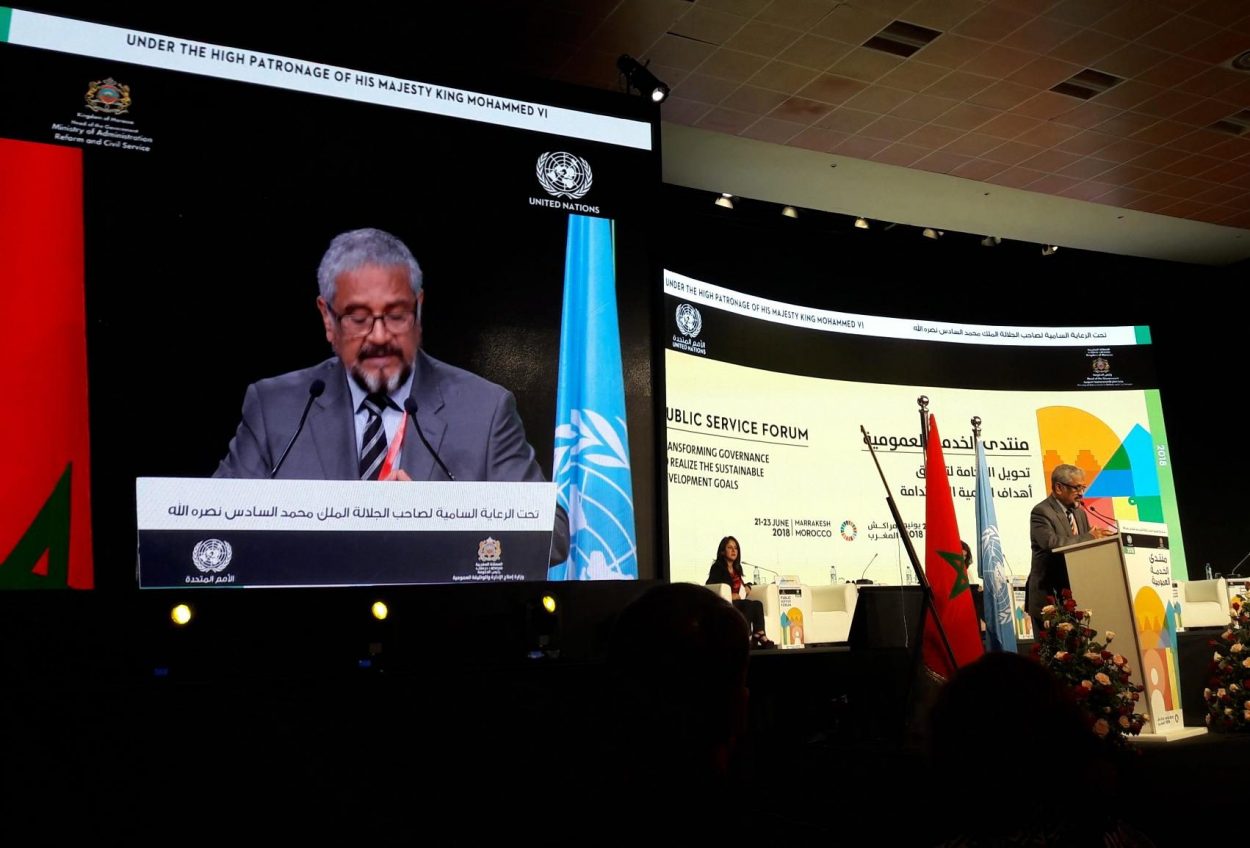
by BGF | Aug 13, 2018 | News
In the UN Public Service Forum 2018, held in Marrakech, the former President of Mauritius, Cassam Uteem, presented ideas about how the World Leadership Alliance- Club de Madrid ‘s project- Shared Societies can inspire the implementation of Agenda 2030.

World Leadership Alliance-Club de Madrid (WLA-CdM) is an organization which has been working closely with BGF and MDI in developing the AIWS 7-Layer Model to build the Next Generation Democracy. Recently, President Uteem – Member of the WLA-CdM, took part in the debate about Public Service. In the opening of the UN Service Forum 2018, he shared his view about the role of public servants under the title “What governance for the Sustainable Development Goals (SDGs)?”
Around 600 to 800 participants – Ministers, senior government officials, mayors, representatives from civil society and those from international as well as regional organizations, etc. participated in this forum to discuss paths for transformation and innovations of governments and institutions. President Uteem put special emphasis on the diversity of cultures in public service – the key to foster an implementation of SDGs.
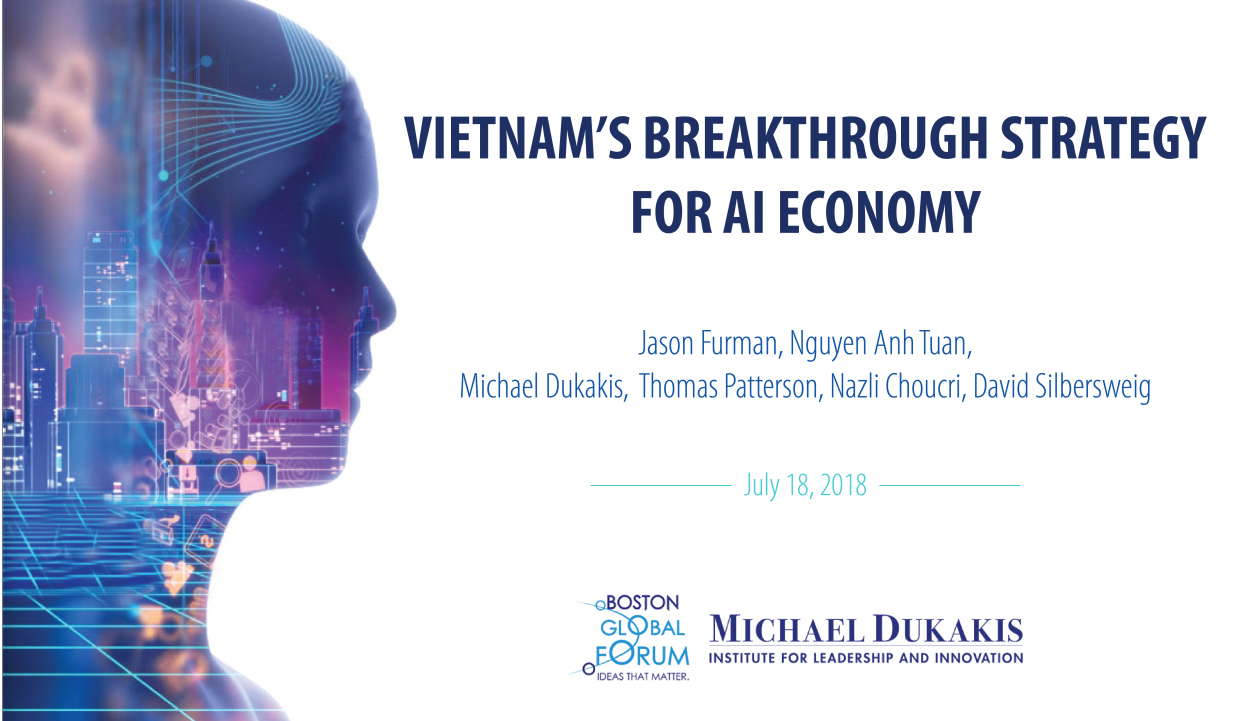
by BGF | Jul 26, 2018 | AI-Government, News, AIWS and the Age of Global Enlightenment
By Jason Furman, Nguyen Anh Tuan, Michael Dukakis, Thomas Patterson, Nazli Choucri,
David Silbersweig
July 18, 2018

Vietnamese Prime Minister Nguyen Xuan Phuc has an aspiration to utilize Artificial Intelligence (AI) to build a civilized and prosperous Vietnam, taking this great opportunity for Vietnam to become a pioneer. Under the direction of Prime Minister Nguyen Xuan Phuc, Minister of Ministry of Planning and Investment (MPI) Nguyen Chi Dung led a delegation of MPI’s leaders to study in the United States, and on April 23, 2018, the delegation worked with the Michael Dukakis Institute for Leadership and Innovation (MDI) and the Boston Global Forum (BGF) to discuss and propose MDI to advise the development of an AI economic strategy for Vietnam.
In response to the aspirations of the Government of Vietnam, MDI carried out the research and prepare report a report by Prof. Jason Furman – Harvard University, Chairman of the Council of Economic Advisers of President Barack Obama, who chaired the drafting of the AI Strategy for the US Government, and Mr. Nguyen Anh Tuan – Director of MDI, with the support of Governor Michael Dukakis – Chairman of MDI and BGF, Prof. Thomas Patterson – Harvard University and Prof. Nazli Choucri – Massachusetts Institute of Technology (MIT) and Prof. David Silbersweig – Harvard University.
The main features of the breakthrough strategy for AI economy and specific solutions, measures for Vietnam: Becoming an pioneer in building the AI-Government and the AI Age Culture owned by the Government of Vietnam, attracting intellectual elites in the Boston area, attracting fundings from the World Bank and the United States, establishing a leading country in automatic governance by AI, then building an AI Innovation Zone which has the ability to provide advanced products and services for Vietnam and international markets, helping Vietnam to become one of the advanced and leading countries in AI.
It is hoped that the Government of Vietnam will find here useful suggestions and recommendations for the development of Vietnam’s AI economy, making Vietnam move forward to go with the civilized and advanced countries in the field of AI.
♦ ♦ ♦
Download Summary Report
Download Full Report
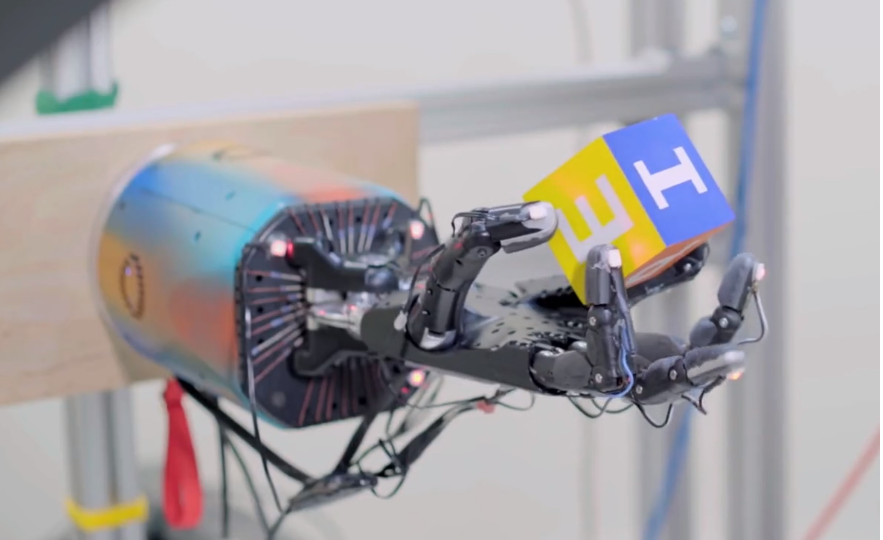
by BGF | Aug 6, 2018 | News
Researchers have developed an algorithm that gives robots the ability to teach themselves physical tasks, and practices in a few days—the equivalent of a hundred years inside a computer simulation.

MIT Technology Review introduced brand-new technology, an AI-driven robot hand, dubbed Dactyl, capable of executing physical tasks. The technology comes from a UK company called Shadow combined with a robotic system developed by OpenAI.
A machine-learning technique known as reinforcement learning helped accomplish the physical tasks. Reinforcement learning originated from the way animals learn through positive or negative feedback. OpenAI approached this measure by introducing random variations in the learning environment, which speeds up the programming and training process. It is nowhere near as agile as a human at the moment, but increasing the processing power and introducing more randomization might improve its capabilities in the future.
For now, a measure to enhance its ability is being worked out. But in the near future, when machines have the agility of humans, many fields will see huge advancements. We will need a strategy where humans can still benefit, even as more jobs are replaced by machines. That is what organizations like MDI are working on—indeed, MDI, an offshoot of BGF, is currently developing standards that will help to ensure AI benefits humanity.
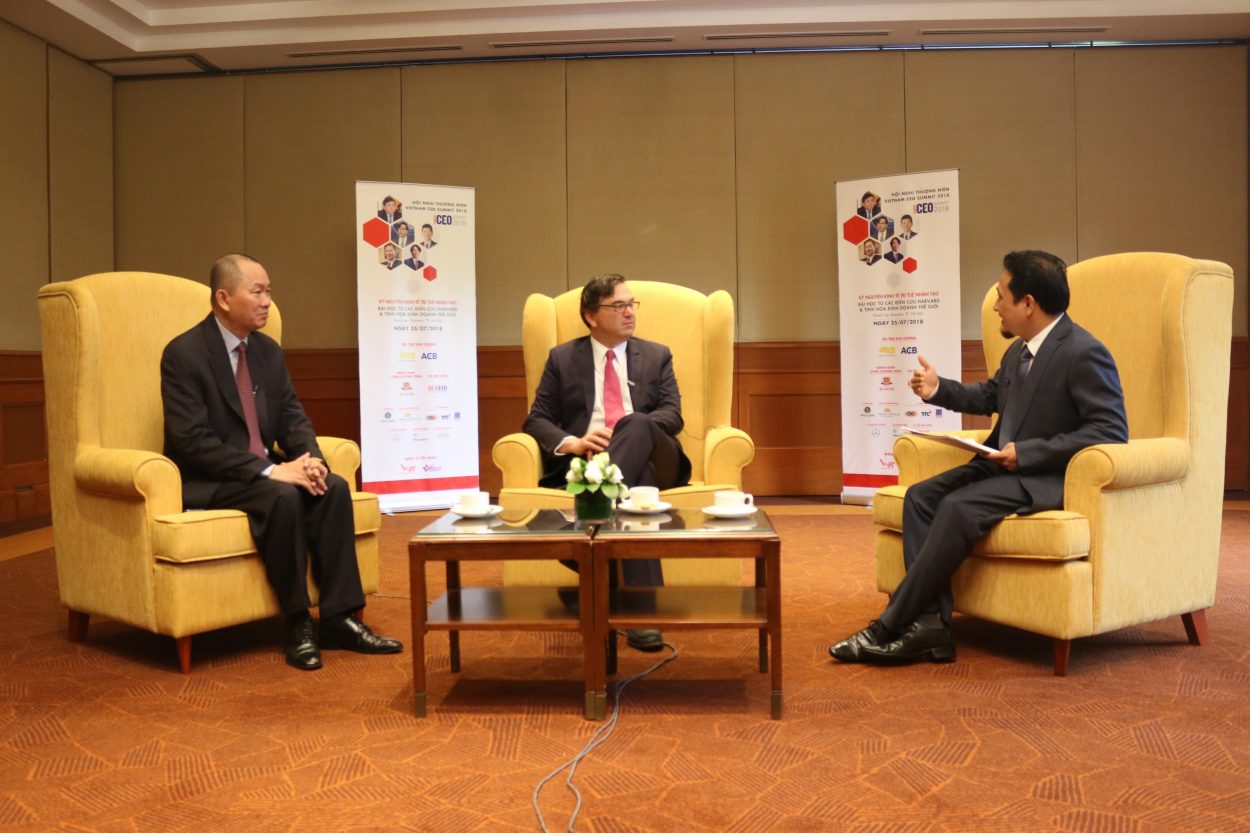
by BGF | Aug 6, 2018 | News
On his visit to Vietnam for the Vietnam CEO Summit 2018, Prof. Jason Furman – Harvard Kennedy School, Chairman of the Council of Economic Advisers for President Barack Obama, member of AIWS Standards and Practice Committee and Mr. Nguyen Anh Tuan – Director of The Michael Dukakis Institute for Leadership and Innovation (MDI) participated in a Talk show with Mr. Vu Dang Vinh – General Director of Vietnam Report Jsc. about the AI strategy for Vietnam’s economy.

In the talk show, Prof. Jason Furman and Mr. Nguyen Anh Tuan discussed the strategy by emphasizing the current situation of Vietnam and how the strategy would be feasible. They also discussed the challenges and opportunities that AI would bring to Vietnam’s economy.
It was said that, even though Vietnam has already fallen behind in the age of AI and Industry 4.0 in general, but it still has great potential. The country needs innovation, and citizens should open their minds to global trends.
Prof. Jason Furman suggested that Vietnam should take advantage of being a follower in the field of AI. The nation needs to act quickly, and learn from developed countries like the U.S, China, etc. to figure it out how Vietnam can use AI for its development (He also shared his experiences when he chaired the AI Strategy Report for the U.S, published in December, 2016). Furthermore, the cost of equipment to develop AI is a lot cheaper now than it was 5 years ago. Vietnam also has the help of many foreign companies, organizations, and MDI. Representative of MDI, Mr. Nguyen Anh Tuan, stated that the breakthrough strategy for Vietnam to become an advanced country in the field of AI is to build the AI-Government and the AI Age Culture owned by the Government of Vietnam.
AI can bring about prosperity and productivity for the Vietnamese if they can learn how to use it properly. “It is not perfect, it can make mistakes, but it is important that we can learn how AI can work with humans.” said Prof. Jason Furman.
In sum, whether Vietnam makes it to the forefront of AI depends on its commitment and effort in implementing breakthrough strategies.

















